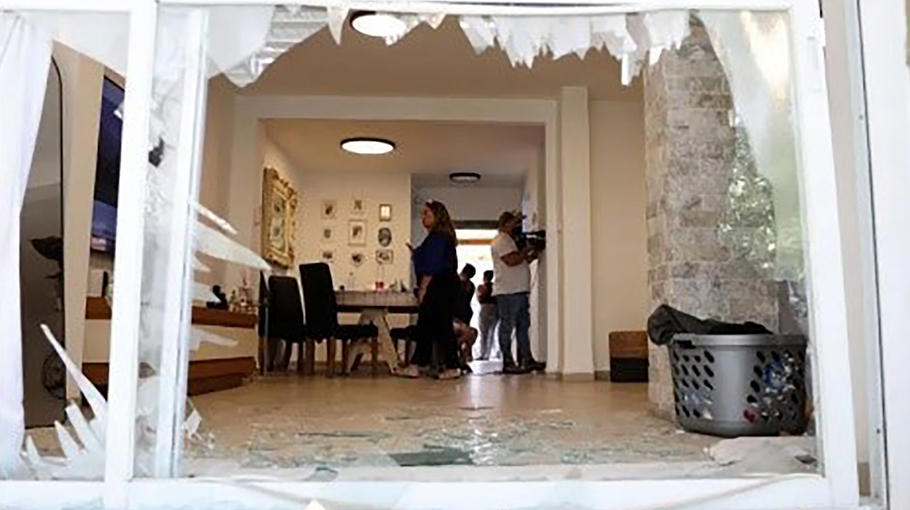Israel, Hezbollah exchange heavy fire in major escalation

Israel's attack on Hezbollah at around 04:30 (01:30 GMT) on Sunday was its biggest since the full-scale war between them in 2006.
The Israel Defense Forces (IDF) said about 100 fighter jets had “struck and destroyed thousands of Hezbollah rocket launcher barrels” in more than 40 areas of southern Lebanon.
The strikes went ahead after "extensive preparation" for a large-scale aerial attack by Hezbollah was detected, IDF spokesman Rear Admiral Daniel Hagari said.
Lebanon’s state-run National News Agency reported that Israeli aircraft had struck Beaufort Castle, the Bir Kalb area, and the outskirts of the towns of Ain Qana, Kfar Fila, Louaizeh, Bsalia, Kfar Melki, Sajd and Sarba.
A resident of the town of Zibqeen said it had “felt like the apocalypse”.
One person was killed in a drone strike on a car in Khiam, the Lebanese ministry of public health said. The Amal movement said one of its fighters from the village had been killed.
The ministry also said an Israeli attack on the village of Tiri had killed two people. Hezbollah confirmed the deaths of two fighters from nearby Haris, without providing any details.
"What happened today is not the end of the story,” Israeli Prime Minister Benjamin Netanyahu told a cabinet meeting.
As well as destroying short-range rockets, Mr Netanyahu said, the IDF intercepted all of the drones which Hezbollah had “launched at a strategic target in the centre of the country”.
“[Sheikh Hassan] Nasrallah in Beirut and [Ayatollah Ali] Khamenei in Tehran need to know that this is an additional step in changing the situation in the north,” he warned the leaders of Hezbollah and Iran.
Foreign Minister Israel Katz said he had told dozens of his counterparts worldwide that Israel did “not seek a full-scale war” but would “do whatever it takes to protect our citizens”.
Not long after the Israeli strikes, Hezbollah said it had targeted and hit 11 Israeli military facilities in Israel and the occupied Golan Heights with more than 320 Katyusha rockets.
It described the barrage as a response to the assassination of senior military commander Fuad Shukr, who was killed in an Israeli strike in Beirut on 30 July.
The group said the operation had been “completed and accomplished” and it dismissed as "empty" Israel’s statements that its strikes on Sunday had thwarted a larger attack.
Video footage showed explosions in the sky as incoming rockets were intercepted by the Iron Dome air defence system.
Later, the IDF announced that an Israeli Navy soldier had fallen "during combat in northern Israel", without providing further details.
Israeli media say he was killed in an incident involving a Hezbollah drone and an Iron Dome interceptor in the vicinity of a Dvora patrol boat, about 4km from the Lebanese border.




